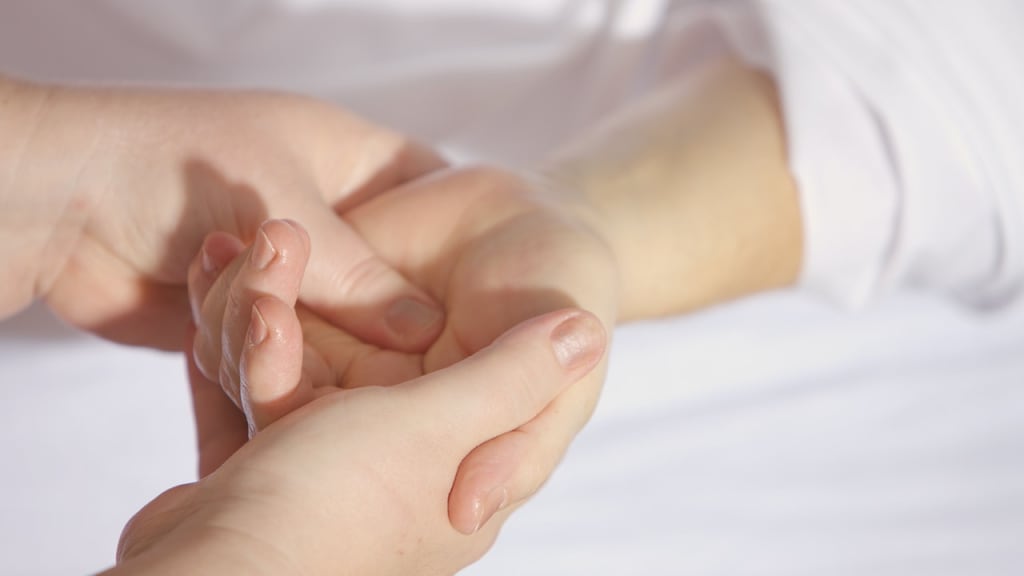What Is Evidence-Based Massage Therapy and How Does It Work?
If you keep up with the massage therapy world, you'll notice that there are some new terms and ideas floating around.

Massage with evidence Evidence-based therapy Evidence-based practise is important. Medicine that is based on science. What exactly does it all imply?
Tradition-based massage
Much of what we were taught in massage school was based on tradition or what was thought to be common sense. We did things the way we were taught because... well, that's how we were taught to do them. Massage helped with "circulation." After a massage, we should drink plenty of water to "flush out toxins." Doesn't it seem reasonable?
When an instructor told me that research had shown that massage did not, as was commonly claimed, reduce lactic acid in muscle tissue, it was my first introduction to the idea that science was beginning to contradict some of our deeply held beliefs. We'd always been told that soreness was caused by lactic acid build-up in the muscles, which could be reduced by massage. Massage has been shown to reduce muscle soreness on numerous occasions. Isn't it true that massage reduces the presence of lactic acid?
After some research, it was discovered that massage did not, in fact, reduce the presence of lactic acid.
How is it possible? Was it possible that what we'd been told was incorrect?
Massage does, in fact, help to relieve muscle soreness. However, it does not appear to be due to lactic acid. How does massage help to relieve pain? We don't fully comprehend how it occurs, but we do know that it does.
Despite the fact that one of massage therapy's sacred cows had just been slaughtered, I appreciated that this instructor was paying attention to science and research and was more interested in understanding the truth of what was going on than in defending a tradition that might not be viable.
Evidence-based massage
Massage therapy founded on evidence-based ideas and principles is known as evidence-based massage therapy. There is scientific evidence to support the existence of trigger points and their treatment. Massage has been shown to relieve muscle aches and pains, as well as anxiety and depression.
Massage therapists' claims and practises are frequently based on tradition rather than evidence. We would be severely limited if we could only make statements based on scientific studies because there is not yet a large body of knowledge documenting the physiology and effects of massage therapy. Some prefer the term "evidence-informed practices," which they believe is more accurate. Scientific evidence, clinical experience, and careful observation are all factors in evidence-informed practices.
I assumed that this reliance on tradition was limited to massage therapy, so I was surprised to see a large display about evidence-based medicine in the halls of St. Louis University Medical School one day. Even in conventional medicine, it appears that many procedures are performed because they have always been done that way, without evidence that they are the best or even effective.
When confronted with new information that contradicts previously held beliefs, scientists must always be open to new evidence and willing to change their minds. I'm sure I wasn't the only massage therapist surprised by this information. After I recovered from my shock, I examined the evidence he presented. It took me a while to figure out what he was saying, but in the end, it appeared that he had solid evidence to back up his claims.
Is this to say that massage "doesn't work"?
It's self-evident that massage makes us feel better; we just don't know why or how.
Is it really that important that we understand? Yes, I believe so. First and foremost, as a therapist, I want to be certain that the claims I make to my clients are accurate. I don't want to lead them astray by making unsupported claims. Furthermore, I believe that the more we understand, the more effective we will be at our jobs. Finally, I believe that the more we can document the benefits of massage therapy, the more widely it will be accepted.
Resources
There are several excellent resources available to massage therapists to keep up with current research in the field. Professional associations, online forums, and Facebook pages are all good places to start. Apart from massage-specific forums and articles, areas like pain science, neuroscience, and related fields can help the science-based therapist stay informed about how the body works and how we, as therapists, can influence it.
Connecting with physical therapists and researchers can also help to improve one's understanding.
We are in a much better position to achieve the client's goals, whether they are for pain relief or relaxation, when we truly understand how the body works. Our clients can trust us and know they are in good hands when our knowledge is based on what is actually known about how the body works.





Comments (1)
It's great information